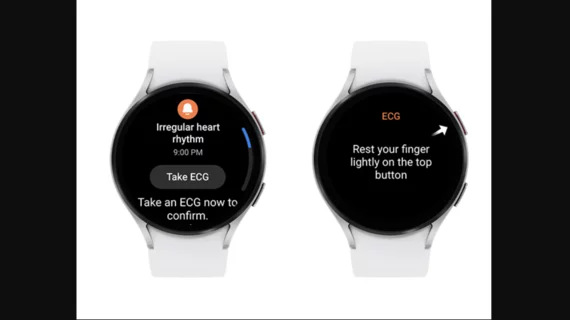FDA clears AFib alerts for Samsung smartwatches
Samsung Electronics has gained U.S. Food and Drug Administration (FDA) clearance for a new Irregular Heart Rhythm Notification (IHRN) feature that is part of its Samsung Health Monitor app.
The app, which runs on Samsung’s Galaxy Watch line, is already equipped with an on-demand electrocardiogram (ECG) feature. Now it can also detect warnings signs of atrial fibrillation (AFib), all while being attached the user’s wrist.
The IHRN feature is designed to run in the background, warning the user when signs of AFib are detected. At this point, the user is prompted to take an ECG with their watch to gather additional data.
“We’re excited to announce that IHRN, designed to help millions of people around the world who may not be aware of a potential heart risk, has been cleared by the FDA,” Hon Pak, vice president and head of the digital health team at Samsung Electronics, said in a prepared statement. “This is yet another example of how Samsung prioritizes proactive safety solutions and enables users to receive a more holistic understanding of their cardiovascular and overall health.”
The IHRN feature will be part of the One UI 5 Watch software Samsung Electronics plans to debut in the months ahead. The software will initially be part of the newest line of Galaxy Watch devices, though it will be later made available to users with previous-generation watches.
According to Samsung Electronics, the IHRN feature “is not intended to provide a notification on every episode of irregular rhythm suggestive of AFib” and it was designed for users who are at least 22 years old.

